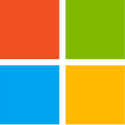
Vista Made to Work on Eee PC
Despite the limited hard drive space and relatively low system specs, a user over at the MoDaCo forums has managed to get Windows Vista working on one of ASUS' 4GB Eee PCs. All you need is an Eee PC, a Windows Vista disk, an SD card (at least 2GB, preferably more) and a 1GB USB flash drive. The process, which can be seen here, basically involves using vLite to create a streamlined Vista installation without features you don't need, copying that to the USB drive and installing the OS onto the Eee PC from there. After that you need to move the Side-by-Side (WinSXS) directory to the SD card in order to free up some disk space, and from there you should have a working Windows Vista installation. So any Eee PC owners desperate to run Microsoft's latest operating system can now do so, albeit a bit sluggishly.

